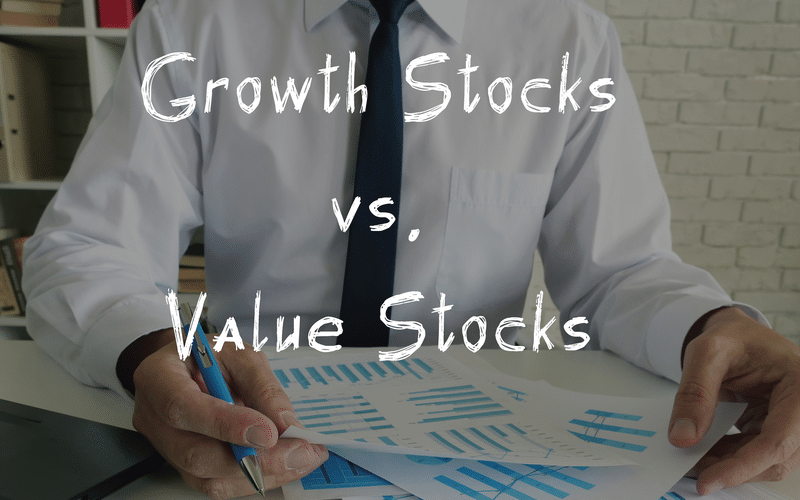
Growth stocks typically perform better than the average performance of the market segment to which they belong. A growth stock has proven to outgrow the rest of the market consistently. Some investors, therefore, find them attractive because of their proven performance and stability.
Growth stocks are generally associated with highly valuable companies with large market shares. Often, such companies prioritize growing their market and establishing strong capital bases.
By investing in growth stocks, investors hope to profit when the company’s capital grows. Therefore, they would be willing to pay more for the highly valued stock now and ride on the confidence that such a stock will almost certainly appreciate in the future.
Companies that issue growth stocks usually re-invest most of their earnings into activities geared towards expanding the company. This establishes a strong capital base that makes their stock relatively more attractive to investors. Because of the generally favorable perception of many investors towards growth stocks, they are often overvalued. This is a key contributor to their “expensive” nature.
On the other hand, value stocks are assets whose actual value outweighs what is portrayed by the stock market. Therefore, investors interested in buying value stocks have to look beyond the stock price and assess the company’s fundamental value. The motivation behind investing in value stocks lies in the belief that they are rough diamonds that are currently undervalued but have what it takes to succeed in the future.
The stock performance may not always paint a true picture of the company’s financial health and valuation. Therefore, this may make some stocks undervalued in the stock market, even when they have impressive fundamentals.
Because of such undervaluation in the stock market, investors can get them at a bargain. Once they get to hold of them, they have to wait until the asset finally rises to its “rightful” valuation, letting investors lock in a decent profit.
At times, a stock may be undervalued because the issuing company is relatively new, and investors are apprehensive about it because of the fear of the unknown. In some instances, the price of a stock may have resulted from a rare occurrence that may have triggered a panic about the company’s future growth.
However, some discerning investors may detect earlier that such occurrences may not be as impactful on the company’s fundamentals. Therefore, buying a value stock during a transitional period may prove beneficial once the company bounces back from the temporary setback.
One way to identify a value stock affected by an event is by looking at the disparity between its historic highs against its current price.
Whether buying growth or value stocks, it’s important to remember that a stock’s past performance may not necessarily be a true reflection of its future results. The foundation of a good stock lies in what technical analysis tells us and strong fundamentals.
How can you tell whether to go for value or growth stocks?
You should buy growth stocks under the circumstances below.
- If you are willing to wait for your portfolio to accumulate value for a long period, this is because, as cited above, companies with growth stocks typically plow back their profits into company expansion instead of issuing dividends.
- If you don’t mind periodic changes in the stock price by wide margins, growth stocks are prone to making large gains when the market is favorable and losing by large margins when poor performance by the company gives investors reason to panic over growth prospects.
- If you have what it takes to select companies that will consistently outperform the market and other companies in the sector. For a company to qualify as a growth stock, it must have performed better than most of its competitors in its market segment. If you are in a highly competitive sector, it may be challenging to pick out winners and identify growth and other types of stocks.
When to choose value over growth stocks
- If you want an investment that will give you returns within a short period, companies with value stocks use dividend payment as an incentive to attract investors. Therefore, companies issue significant dividends instead of prioritizing spending their earnings on company expansion. Therefore, if you want quick returns, then value stocks are a good choice.
- When you want stable stocks, the performance of value stocks in the securities markets is usually characterized by marginal rises and falls. This is primarily due to them not being as aggressive as growth stock companies regarding new investments. Consequently, their risk exposure is limited. Similarly, they also lose marginally for the same reason. Therefore, they are a good choice if you want stable and relatively stable profit margins.
- When you are unwilling to take on the potential risk that underlies value stocks, some stocks may be perceived as being undervalued, while in reality, they are on their way down, such a company may not have invested adequately in new technology and has fallen behind its competitors. Therefore, if you don’t want to go through the grueling process of finding out the minor details of a company’s fundamentals, then you shouldn’t go for value stocks.
Bottom line
Growth and value are significant aspects of a company’s business nature. Before investing based on either part, you should understand the implications of your choice. Alternatively, a blend of value and growth stocks would be great for your portfolio diversification.





